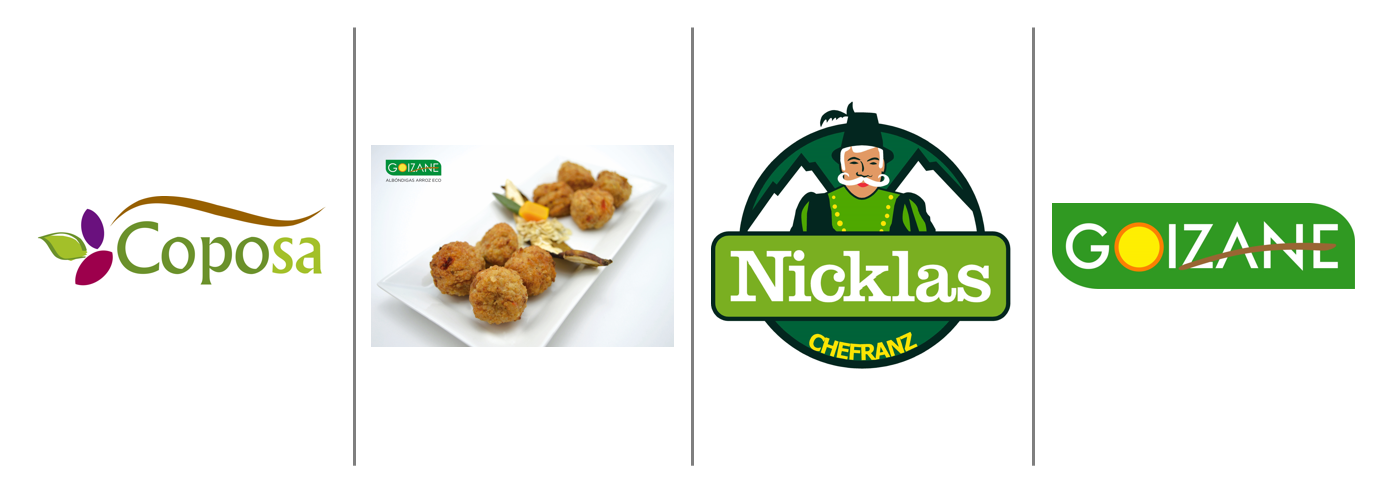
Pictures: COPOSA (COPOSA Logo, GOIZANE Rice Ball product, Product logos)
COPOSA is one of the small-to-medium enterprises (SMEs) involved with the PROTEIN2FOOD project. Here is a short interview with the Laura Palacios.
1) Tell us a bit about your business and the role you have in relation to the PROTEIN2FOOD project.
COPOSA is a company founded in 1931, which began its activity producing and marketing German sausages and meat-based products. The new needs of consumers, increasingly demanding and concerned about both their health and the environment, have led us to expand our range of products to meet their demands (vegetable product, organic, with specific nutritional properties …). And this way of COPOSA to adapt to meet consumer expectations, has made that our company form part of a project as P2F, developing vegetable burgers with vegetable protein. COPOSA develops products incorporating the raw materials obtained by other partners of the project, always contributing that the result will give added value vs what already exists on the market.
2) How has being part of PROTIEN2FOOD benefitted your business? (knowledge, relationships, employment etc.)
It can be advanced that P2F has allowed us access to R+D+i funds, facilitating this to COPOSA to dedicate more efforts and personnel to the development of new products, encompassed within a multidisciplinary research. Without this founds this would be very difficult. In addition, the project P2F has allowed us to access novel raw materials with good nutritional characteristics, greater knowledge of the functional properties of the components of our raw materials and access to market studies, consumer behaviour and acceptance.
All the effort made in R&D will allow not only the maintenance of the current staff in the department but also that of the entire company, ensuring the growth of this from the market launch of more and new products.
The permanent contact between our industrial and commercial world with the university and purely scientific world, offers us a constant feedback from which we will surely all benefit.
3) In your opinion, what has been the greatest achievements of PROTEIN2FOOD so far?
P2F has encompassed the entire agri-food value chain, from the selection of the most advantageous crops to legislative proposals, including studies of the functional properties of the ingredients obtained, product prototypes and market acceptability studies.
4) Once the project has ended, how will you bring your learnings from PROTEIN2FOOD into your future work?
The lessons learned in P2F, will allow us to develop new products that meet much more the needs of consumers, in a world that goes to a much more personalized food. We start from a good starting point.
